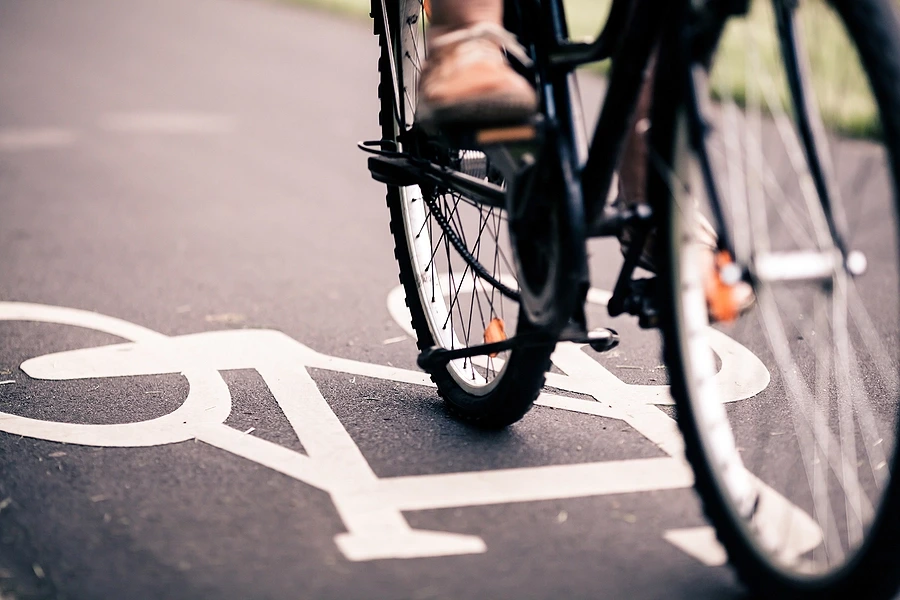How Florida’s Shared Fault Rules Can Affect Your Bicycle Accident Case

Bicycle accidents in Florida often lead to serious injuries, especially when a cyclist is struck by a motor vehicle. For injured riders, pursuing compensation may seem straightforward at first. But Florida’s shared fault rules—also known as comparative fault—can significantly impact the outcome of a claim. Understanding how this legal concept works is key for anyone navigating a bicycle accident case, especially in areas like Palm Harbor where roads are shared by drivers, cyclists, and pedestrians alike.
What Shared Fault Means in Florida
Florida follows a modified comparative negligence system. Under this rule, if you are partially at fault for an accident, your compensation can be reduced based on the percentage of fault assigned to you. More importantly, as of March 2023, Florida law now bars recovery if you are found to be more than 50 percent responsible for the accident.
Let’s say you’re hit by a car while biking, and the investigation finds you were 20 percent at fault because you failed to use a designated bike lane. If your damages total $100,000, your award would be reduced by 20 percent. You would receive $80,000. But if the court or insurance company determines you were 51 percent responsible, you would not be entitled to any compensation under the current law.
How Shared Fault Is Determined
Assigning fault after a bicycle accident is rarely clear-cut. Insurance companies, attorneys, and sometimes courts look at various types of evidence to determine who was responsible and to what degree. This can include:
- Police reports
- Eyewitness testimony
- Traffic camera or dashcam footage
- Accident reconstruction reports
- Bicycle and vehicle damage
- Medical records and injury patterns
In Palm Harbor and across Florida, the specific facts of the case matter. For example, if a driver was speeding or distracted, they may be found mostly at fault. However, if the cyclist failed to signal a turn, ignored traffic signals, or rode against the flow of traffic, that could reduce or eliminate their ability to recover damages.
Common Scenarios Where Shared Fault Applies
Many bicycle accident cases involve some level of shared fault. Here are a few situations that can lead to disputes over liability:
- Failure to yield: A cyclist rides through an intersection without yielding, but a car is also speeding.
- Nighttime visibility issues: A cyclist isn’t using proper lighting or reflective gear at night, while the driver isn’t paying attention.
- Bike lane misuse: A rider swerves out of a bike lane without signaling, and a driver makes no attempt to slow down or give space.
- Distracted riding: The cyclist is wearing headphones or using a phone and misses a vehicle turning right into a driveway.
Each case is fact-specific, and even small details can make a big difference in how fault is assigned.
The Role of Evidence in Protecting Your Claim
To protect your right to compensation, collecting and preserving evidence is essential. After a bicycle accident, taking the right steps can help clarify the fault and strengthen your case. These steps include:
- Reporting the accident to law enforcement
- Taking photographs of the scene, vehicles, bike, and injuries
- Collecting witness names and contact information
- Seeking immediate medical attention
- Notifying your insurance company
- Consulting a personal injury attorney experienced with Florida’s comparative fault laws
Without proper documentation, it becomes easier for insurance adjusters to argue that you were primarily at fault, reducing or denying your claim.
Insurance Companies and Comparative Fault Arguments
It’s important to understand that insurance companies often use shared fault arguments to lower payouts. If an insurer can prove—or simply suggest—that you were at least 51 percent at fault, they don’t have to offer compensation at all under Florida law.
Even when liability seems obvious, insurers might argue that you could have avoided the crash if you had been more careful. This is why it’s critical not to give recorded statements or accept initial settlement offers without legal guidance. A personal injury lawyer can help you counter these arguments with the right evidence and strategy.
Why Legal Representation Matters in Shared Fault Cases
Bicycle accident claims involving comparative negligence can be complex. Proving that you were not primarily at fault requires a detailed understanding of Florida traffic laws, accident reconstruction, and insurance negotiation tactics.
An experienced attorney can:
- Investigate the accident thoroughly
- Gather and preserve evidence
- Interview witnesses
- Consult with accident reconstruction experts
- Handle all communication with insurers
- Advocate for a fair assessment of fault
- Push for maximum compensation under the law
In Palm Harbor and surrounding areas, working with a local lawyer who understands the roads, traffic patterns, and legal landscape can provide a real advantage.
Types of Compensation Available Even with Partial Fault
If you’re found to be less than 50 percent responsible, you may still be entitled to a range of damages, including:
- Medical expenses (past and future)
- Lost wages and reduced earning capacity
- Pain and suffering
- Emotional distress
- Loss of enjoyment of life
- Bicycle repair or replacement
The amount you receive will be based on your total damages minus your percentage of fault. That’s why minimizing your share of responsibility is so critical to the outcome of your case.
Conclusion
Cycling in Florida offers many benefits, but it also comes with risks—especially when navigating roads shared with cars and trucks. When an accident happens, understanding how Florida’s shared fault rules work can make a major difference in the compensation you’re able to recover.
If you’ve been injured while cycling and believe someone else was at fault, don’t assume that partial responsibility means you have no case. Speak with a local personal injury attorney who can evaluate your situation and explain your legal options. A fair and thorough investigation can help ensure that blame is placed where it truly belongs—and that you’re not left covering the costs of someone else’s negligence.
